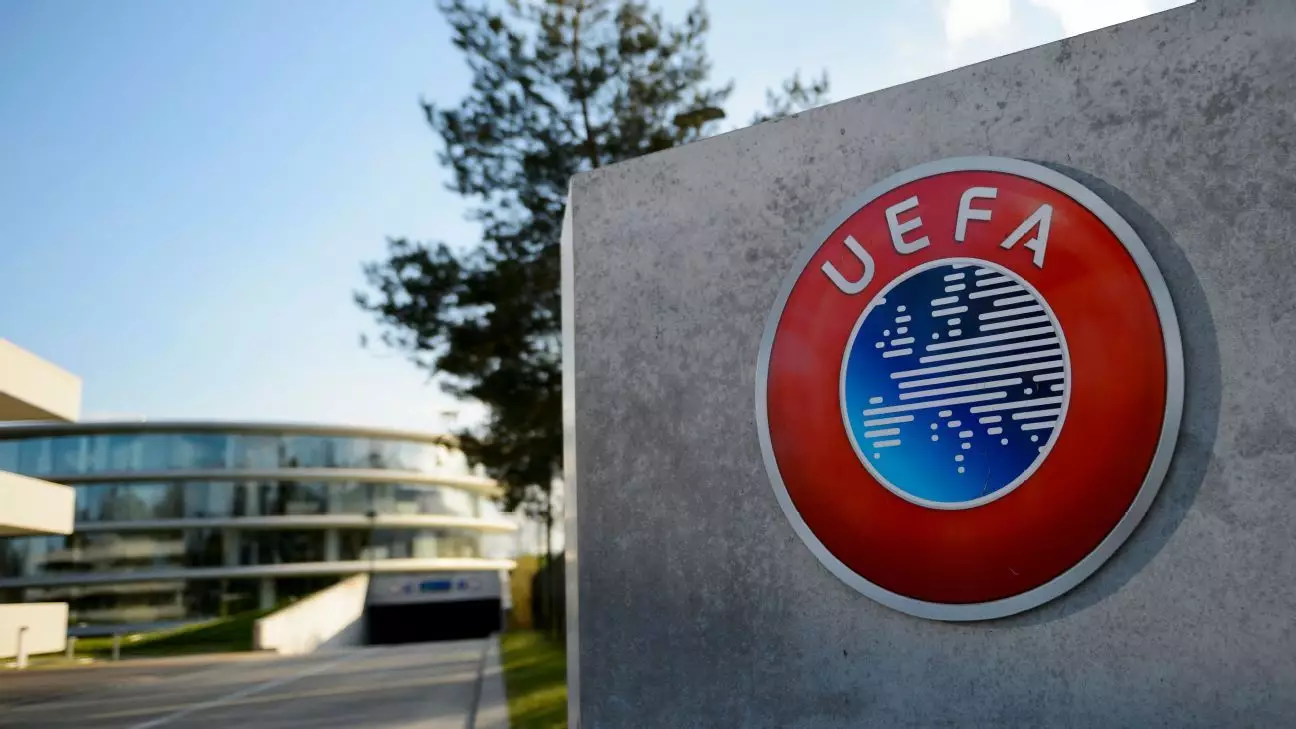In recent years, UEFA’s vigilant stance against financial misconduct reveals a commitment to restoring integrity and stability within European football’s elite echelon. The recent sanctions against clubs such as Chelsea and Barcelona serve as stark reminders that even the most successful teams are not immune to financial scrutiny. While these punishments may seem punitive, they highlight a larger effort to promote long-term sustainability over short-term glamour fueled by reckless spending. The fine line between strategic investment and fiscal irresponsibility is being carefully monitored, signaling a pivotal change in how the industry approaches economic governance.
At the core of UEFA’s approach is a desire to curb the excesses of clubs that prioritize short-term success at the expense of financial health. The fine levied on Chelsea—totaling €31 million—sets a new record for a single-season penalty in European club history. This stark figure underscores UEFA’s intolerance for overspending and misreporting, emphasizing that no club, regardless of stature, is above financial discipline. The club’s violations, notably failing to approach break-even and exceeding squad expenditure limits, paint a picture of reckless financial conduct, despite the club’s flotilla of star players and high-profile transfers. UEFA’s penalties serve as both a warning and a catalyst, urging clubs to adopt more responsible financial practices.
Interestingly, Chelsea’s response underscores a desire for transparency and a recognition of the consequences of financial misconduct. The club claims to have worked closely with UEFA and stresses its upward financial trajectory. However, the stark reality remains that despite their assertions, the club was fined heavily—an explicit indication that UEFA remains uncompromising when it comes to financial fairness. These penalties also encompass future sanctions contingent on achieving predetermined financial targets, illustrating an ongoing process rather than a one-off punishment.
Meanwhile, Barcelona’s case highlights the complexities of financial management within the football industry. The Catalan powerhouse was fined €15 million for making excessive losses—an infraction that reveals the precarious balance between success on the pitch and financial sustainability. Barcelona’s recent financial struggles have garnered significant attention, illustrating how even historically dominant clubs are vulnerable to regulatory action if their bookkeeping fails to meet UEFA’s criteria. What’s noteworthy is UEFA’s approach: fines for making losses are part of a broader policy aimed at deterring unsustainable fiscal practices, especially when clubs are vying for European glory and widespread commercial success.
This crackdown reflects UEFA’s recognition that financial mismanagement can threaten the integrity of competitions and the stability of the industry. The fines are not simply punitive but serve as a wake-up call, reminding clubs that financial discipline is vital in maintaining competitive fairness and fostering an environment where success isn’t built on borrowed money or fleeting investments. The sanctions also send a clear message to owners and stakeholders: reckless spending can lead to long-term consequences, including restrictions on future European participation or even exclusion, as seen in other cases.
Moreover, UEFA’s actions expose a broader debate about the role of wealthy owners and their influence on club finances. The case of Chelsea under Todd Boehly’s ownership, characterized by significant expenditure since 2022, underscores the tension between ambition and prudence. The club’s recent history shows a pattern of lavish spending, including high-profile transfers and investments in assets like hotels, which have come under scrutiny. It raises questions about whether financial excesses are sustainable in the long run, especially when clubs often prioritize immediate success over fiscal accountability.
While critics may argue that UEFA’s penalties are too harsh or politically motivated, there is a compelling argument that these measures are necessary to prevent a financial free-for-all among Europe’s most renowned clubs. The fine imposed on Manchester City and Paris Saint-Germain in 2014 for similar reasons demonstrates that industry giants will always require oversight to maintain a level playing field—both in terms of financial health and sporting fairness.
The broader image emerging from UEFA’s recent actions is a landscape where financial responsibility is not optional but a fundamental requirement for participation in Europe’s most prestigious competitions. Clubs must balance their lust for glory with sustainable business models, ensuring that their chasing of trophies does not come at the expense of their long-term viability. This evolving financial landscape, shaped by UEFA’s intervention, promises to redefine how clubs strategize and operate in the future, placing greater emphasis on transparency, accountability, and fiscal discipline.

